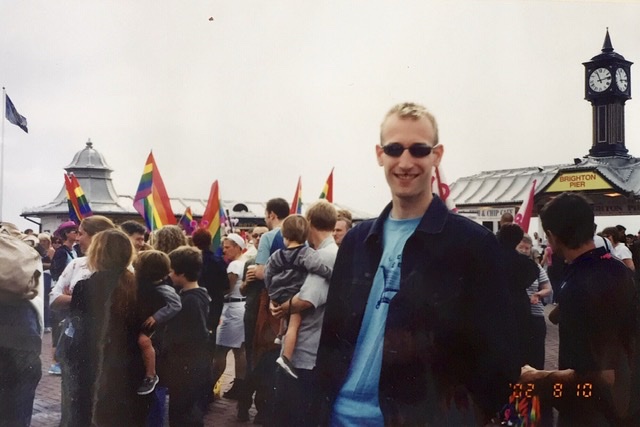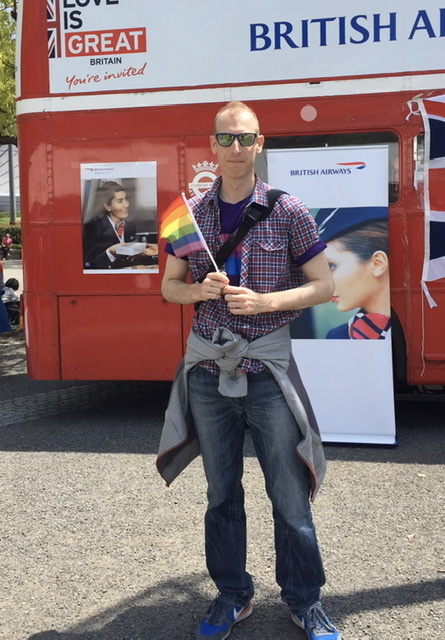It’s a cliché that you don’t come out once, but you come out several times, sometimes to the same person, sometimes even to yourself. It’s also a cliché that as part of the coming out story, you report that you “have known since I was…”, and give an age.

In my research career I have conducted a lot of long semi- or unstructured interviews with people about their life histories. The format of the interview necessitates a linear narrative, and together we (the interviewee and I) build up a collection of ‘significant events’ that can be plotted on a timeline and talked about. It is on the one hand an unnatural conversation, forcing the speaker to create a consistent narrative of their life, but on the other hand we create these stories about ourselves anyway in talking to others about our lives. Especially those of us who ‘come out’ do this, with repeated tellings creating an individual life-story that consistently explains to the listeners how we have come to ‘be’ a particular sexual orientation.
The story we tell to ourselves in private may be very different to the public account we give when we come out to others. This is not a problem and shouldn’t be seen as one. Both stories (or multiple self-stories that change over time) are valid and are important to our identities. The story I would give here is just one of several I have, but telling it makes it real; makes it concrete. I am therefore hesitant to share in print, in case I be accused of not having a ‘stable’ sexuality, because the narrative I give in person will differ from this here. Some details will be included and others excluded, saved for sharing in person, perhaps over coffee…
I have known that I am bisexual since my mid-teens. But I only came out to my parents recently. I decided it was time for me to be honest to everyone in my life, not because I wanted to go galavanting about (I don’t, I am happily in a relationship), but because hiding that aspect of myself was such a strain. Being unable to say that one finds a man or woman (or person of another gender) attractive without couching it in some sort of heteronormative framing is frustrating. It’s like you’re speaking while biting your lip.
It’s also tiring trying to remember who knows what part of your identity and who doesn’t, especially so when you have a poor memory like I do. Some close friends knew, some acquaintances knew, others assumed I was heterosexual and still others assumed I was gay. I have never actively hidden my sexuality but without ‘coming out’, people assume.
My first outright sexual experience was with a man. The first sexual attraction to a famous person was to a woman (hi, Kylie!). I knew that I was attracted to men and women (and what would now be termed non-binary people, but that vocabulary was not in my mind then) when I was a teenager. The posters I had on my wall at university would have been a sign to those who knew. It was at university that I first told someone that I was ‘bisexual’, when the same-sex couple I was drinking with told me that they were. It was then that I first ‘came out’ to someone other than myself.
But I soon learned that bisexuality is misunderstood. The myths about bisexuality are powerful and believed by many, probably the majority of people. So after coming out to some friends I realized it was simply easier to not mention it to others to avoid having difficult conversations. It was always a relief when somebody would bring up that they were bisexual as I could reply ‘so am I’, but I would wait for others to instigate my coming out rather than actively owning it.
That changed in recent years as I became increasingly irritated by people’s assumptions, or downright biphobia. So I told more people. I told close friends who didn’t know, and told them that “it doesn’t change anything” (but of course it does—one’s actions become viewed through a different lens). I became more vocal on twitter. I came out to my parents and sister.

I have a lot I could say about bisexuality itself, on why I sometimes identify as bisexual and sometimes as queer, but I think I’ll save that for a future post. Suffice to say here that identities are not as stable as we wish—they change as we speak them—but perhaps the statement that bisexuality itself isn’t a phase is as accurate as any.
1 Comment
Comments are closed.